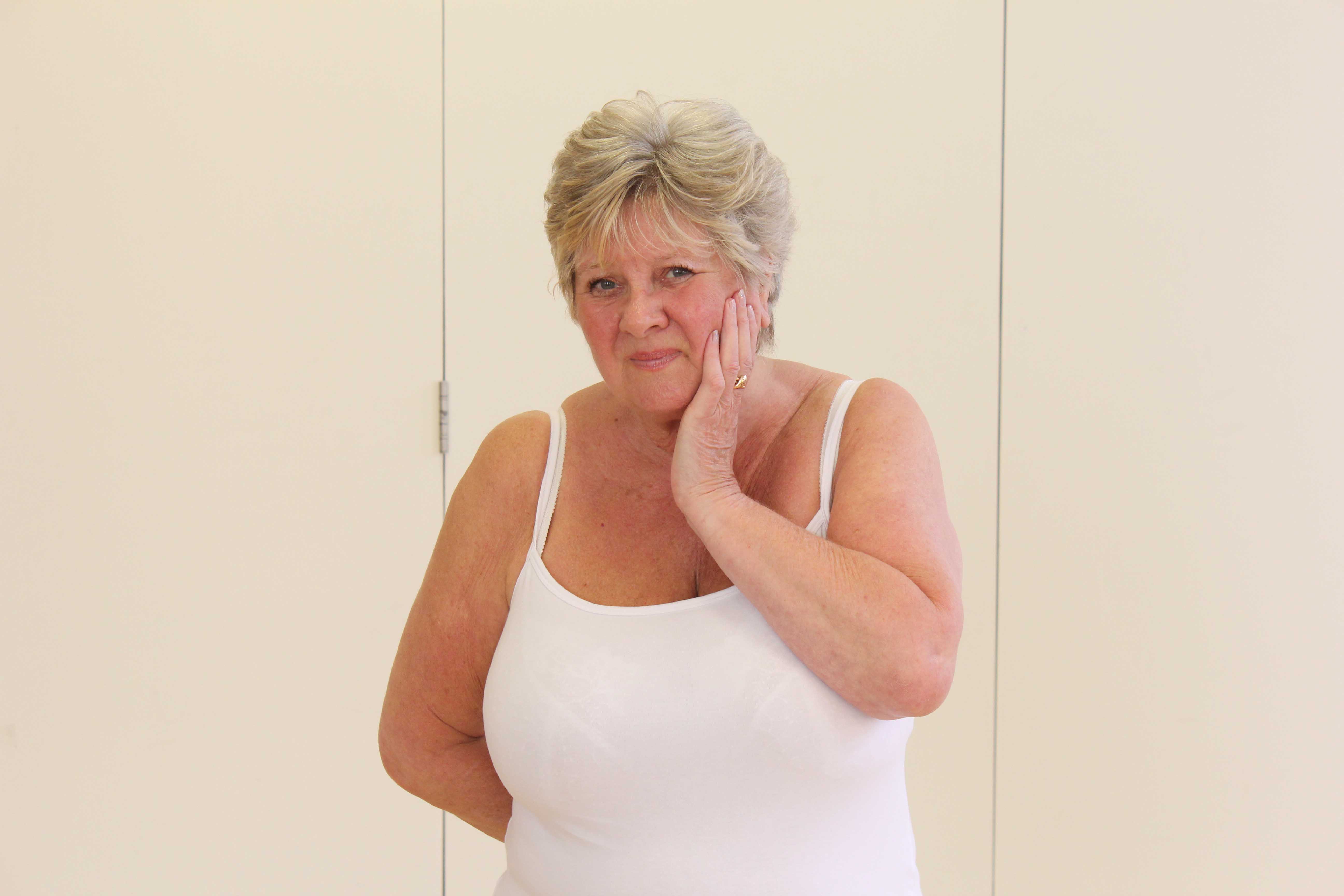Surgery carried out in the early stages is known as decompression surgery. Later stage surgery can be either cosmetic or functional in purpose.
Decompression Surgery
Decompression surgery is only carried out in the most severe cases of Bell’s Palsy if the paralysis is complete and electrical testing indicates that it is necessary.
It is recommended that if surgery is decided, it should be performed as early as possible – preferably within 14 days of symptom onset. Research suggests that after 21 days there is no benefit.
The surgery involves removal of bone around the nerve in order to relieve pressure on the facial nerve.
Facial nerve decompression may improve the eventual recovery of nerve function.
 Above: Massage and mobilisations of the head, face and jaw
Above: Massage and mobilisations of the head, face and jawLater stage surgery for residual weakness and distortion
If the paralysis does not improve, there are many surgical options for improving the function and appearance of the face. These procedures are more often performed if the nerve has been cut or severely compressed longer than the "typical" short-term compression of viral and bacterial induced paralysis.
Whilst these techniques can offer improvement – for example better symmetry at rest or an improved smile, they cannot fully restore natural movement or expressions.
Some surgical options are purely cosmetic – these include:
- Eyelid Surgery - Eye closure may improve by implanting the upper eyelid with a gold weight. This helps to prevent dryness and irritation of the eye and helps to improve the appearance. Shortening of the lower lid may be performed during the same operation to reduce drooping of the lower lid and the associated constant tearing. Complications of these procedures are rare and include bleeding, infection, droopy eyelid, extrusion of the implant and visual loss.
- Brow-lifts,
- Face-lifts,
- Muscle shortening,
- Removal of excess upper eyelid skin,
- Muscle relaxing procedures and static slings are available to improve appearance, but they will not improve muscle function.
Other surgical options are used to help regain function, as well as appearance, you will require physiotherapy following these surgeries:
- Nerve grafts / transpositions – A graft between the tongue nerve and facial nerve (Hypoglossal-Facial Nerve Anastomosis) can enhance motor function in the face. The surgery may improve tone both at rest and with smiling. Following surgery, Physio.co.uk will assist you in learning how to move the face by moving the tongue. Ideally, the motion will become automatic with practice.
- Muscle grafts / transpositions - Transferring one of the jaw muscles (Temporalis / masseter muscle transposition) or attaching a synthetic sling to the corner of the mouth (static suspension) can provide improvement of facial symmetry, and increase motion in the muscles around the mouth. Physio.co.uk will be able to assist following muscle transposition surgery; our physiotherapists will be able to teach you how to smile again through attempting to bite at the same time. Our physiotherapists will also be able to reduce face swelling through use of ice (cryotherapy) and massage techniques.
- Combination of muscle and nerve graft - procedures performed several months apart. Following nerve graft surgery (as described above), free muscle tissue is grafted from the leg to the face. The initial nerve graft supplies the healthy, transplanted muscle. Physio.co.uk will be able to assist following this surgery by teaching you to use your new muscle for forming expressions.
Summary
Surgery for Bell’s Palsy is only carried out in the most severe cases. Surgery can either take place in the very early stages (should electrical testing indicate it is necessary), or the later stages. Physiotherapy is important following later stage surgery focused on regaining function, as it will help teach you how to use your new anatomical set-up. Our physiotherapist’s will be able to teach you methods specific to your surgery that will enable you to create facial expressions.
Call Physio.co.uk now on 0330 088 7800 for more information or to book an appointment please contact us.

 0330 088 7800
0330 088 7800


































